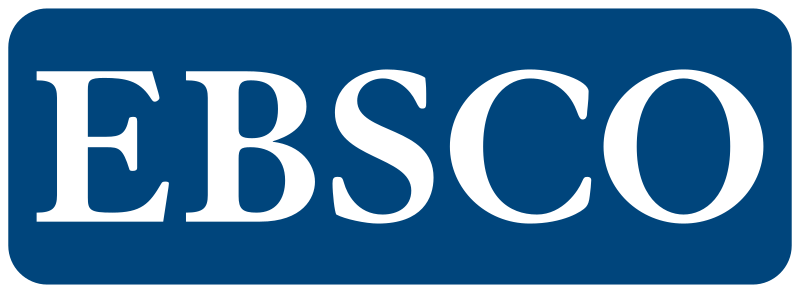Conceptions and didactic-mathematical knowledge of the teacher in teaching the concept of function by projects
Concepciones y conocimiento didáctico-matemático del profesor en la enseñanza del concepto de función por proyectos
Main Article Content
This article communicates the results of a qualitative study carried out with six (6) mathematics teachers from a Higher Education Institution (HEI) in the city of Santiago de Cali-Colombia, which describes their experiences of teaching the concept of mathematical function through four categories. that relate: the training of the mathematics teacher, the curriculum, the mathematical content and the project work model. The research was ethnographic in nature to provide methodological complementarity by crossing various procedural, instrumental and analysis strategies, derived from different methodological references such as: case studies, documentary research, didactic analysis as research methodology and triangulation. The information obtained from the documentary review and the semi-structured interview by guide questionnaire was analyzed through the didactic content analysis of the mathematical concept of function. The results show that not all the teachers in the study were initially trained to be mathematics teachers. But, despite their initial training in different private and public universities and professional programs, they were all trained in the mathematical concept of function during the first semesters of their undergraduate, in courses such as: fundamental mathematics, calculus or related subjects such as physics and the most of them teach the concept of function as they were taught and learned by reproducing traditional, conventional, academic models of psychoeducational approaches such as behaviorism. However, those in professions other than educator teach the concept of mathematical function using course, classroom, or integrative projects. It is concluded that a mathematics teacher who teaches the concept of mathematical function through the project work model must have investigative competence, in addition to the disciplinary and pedagogical component, which impacts the curriculum of programs that train education professionals.
Downloads
Article Details
Azcárate, P. (1998) La formación inicial del profesor de matemáticas: análisis desde la perspectiva del conocimiento práctico profesional. Revista Interuniversitaria de Formación del Profesorado, 32, 129-132.
Bedoya, E. (2017). Formación profesional de profesores de matemáticas: conocimiento didáctico de contenidos matemáticos, modelos locales de análisis didáctico e innovación curricular en matemáticas. Documento de trabajo para los cursos de Maestría en Educación Matemática. Cali: AEM, UV.
Buendía, L.; González, D.; Gutiérrez, J. y Pegalajar, M. (1999). Modelos de análisis de la investigación educativa. Alfar.
Camargo, M., Calvo, G., Franco, M., Vergara, M. y Londoño, S. (2007). La formación de profesores en Colombia: necesidades y perspectivas. ARFO editores e impresiones Ltda.
Guacaneme, E.A.; Obando, G.; Garzón, D.; Villa-Ochoa, J. (2013). Informe sobre la Formación inicial y continua de Profesores de Matemáticas: El caso de Colombia. Cuadernos, 8(Especial), 11-49.
Informe nacional sobre el desarrollo de la educación en Colombia. www.ibe.unesco.org/International/ICE/natrap/Colombia.pdf
Harel, G. y Dubinsky, E. (edts.) (1992). The concpet of funtion. Aspects of Epistemology and Pedagogy. Mathematical Association of America.
Hernández, G. (1998). Paradigmas en psicología de la educación. Ediciones Paidós Ibérica, S.A.
Hernández, F. & Ventura, M. (2008). La organización del currículum por proyectos de trabajo. Ediciones Octaedro, S.L.
Janvier, C. (1987). Traslation Processes in Mathematics Education. En C. Janvier (edt.), Problems of Representation in the Teaching and Learning of Mathematics. Lawrence Erlbaum Associates.
Ley 30 de 1992. (1992, 28 de diciembre). Ministerio de Educación Nacional. Diario Oficial No. 40.700.
Ley 115 de 1994. (1994, 8 de febrero). Ministerio de Educación Nacional. Diario Oficial No. 41.214
Decreto 1860 de 1994. (1994, 3 de agosto). Ministerio de Educación Nacional. Diario Oficial No 41.473.
Decreto 1498 de 1994. (1994, 3 de agosto). Ministerio de Educación Nacional.
MEN. (1998). Serie de Lineamientos Curriculares de Matemáticas. Ministerio de Educación Nacional.
MEN. (2006). Estándares básicos de competencias en Lenguaje, Matemáticas, Ciencias y Ciudadanas matemáticas. Ministerio de Educación Nacional.
MEN. (2015). Portafolio de metodologías flexibles-PPP. Ministerio de Educación Nacional.
Morin, E. (1990). Introducción al pensamiento complejo. Gedisa.
Morin, E. (1999). La cabeza bien puesta: repensar la reforma, reformar el pensamiento. Nueva Visión.
Ramírez, Á. (2007). Pedagogía para Aprendizajes Productivos Proyectos Pedagógicos Productivos y Desarrollo de Competencias. Ecoe Ediciones Ltda. 137.
Rico, L. (1997). Bases teóricas del currículo de matemáticas en educación secundaria. Síntesis.
Ruiz, L. (1998). La noción de función: análisis epistemológico y didáctico. Universidad de Jaén.
Sierpinska, A. (1992). On Understanding the Notion of Function. En E. Dubinski and G.
Skovsmose, O. (1999). Hacia una filosofía de la educación matemática crítica. Universidad de los Andes.
UNESCO. (1990). Comisión Internacional sobre la educación para el siglo XXI. La educación encierra un tesoro, presidido Jaques Delors. www.unesdoc.unessco.org/images/0010/001095/109590so.pdf
UNIAJC. (2013). Modelo Pedagógico Institucional de la Institución Universitaria Antonio José Camacho. Institución Universitaria Antonio José Camacho.
UNIAJC. (2015). Proyecto Educativo Institucional de la Institución Universitaria Antonio José Camacho. Institución Universitaria Antonio José Camacho.



 Perfil Google Scholar
Perfil Google Scholar







